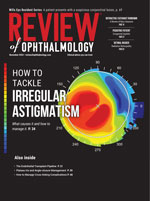The difference between a person and people figures prominently and from different perspectives in two studies released this month, one that received a lot of mainstream coverage, the other not so much.
A widely publicized JAMA survey article laid out physicians’ views about their role in controlling health-care costs.1 A number of noteworthy but not-so-surprising findings emerged, and I trust that you’ve seen them already or can track them down; they’re worth finding.
One of the survey questions proposed that physicians “should sometimes deny beneficial but costly services to certain patients because resources should go to other patients that need them more.” Predictably, 85 percent of respondents strongly or moderately disagreed. Physicians are not in the rationing business, and besides—a person needs a test; people get too many tests.
For many physicians, though, familiarity with the patient plays a role. To be sure, the majority disagreed, but nearly half of respondents moderately or strong agreed that they “generally order more tests when I don’t know the patient well.”
Receiving less attention but touching on a related theme, a study from the NIH and several other institutions shed some interesting light on the patient perspective on the issue of financing.2
Through focus groups and questionnaires, researchers looked at patients’ willingness to discuss cost of treatment alternatives with their physicians. Participants in the study “felt that discussions of out-of-pocket costs, with some caveats, could be appropriate in the clinical encounter,” the researchers say. “ ... a trusted physician with whom they have a strong relationship seemed to make some participants more positively disposed to discussing costs and taking costs into account when making choices among competing interventions in the clinical encounter.”
There are a host of factors that go into building a relationship between doctors and patients, some of them beyond your control. And no one is holding out for the return of Marcus Welby, MD. (You youngsters go google that.) But everyone seems to intuitively get that a person is better than people; my patient is not just a health-care consumer; and my doctor cares a lot more about me than physicians. There’s now even reason to believe that those relationships are more cost-effective.
As we undertake the greatest change to our health-care system in decades, it might be wise to put a little more effort into understanding and building those relationships.

|
1. JAMA 2013;310(4):380-388. doi:10.1001/jama.2013.8278.
2. J Gen Intern Med 2013 Jul 24. doi:10.1007/s11606-013-2543-9.



